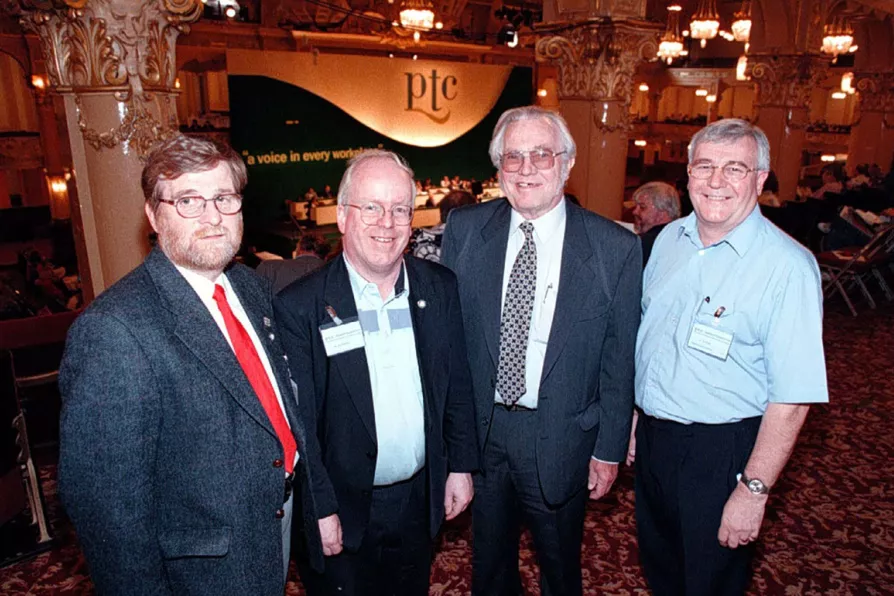Does widespread and uncontrolled use of AI change our relationship with scientific meaning? Or with each other? ask ROX MIDDLETON, LIAM SHAW and MIRIAM GAUNTLETT

 GCHQ union members, who where sacked for their union membership, pictured at the Public Services, Tax and Commerce Union Conference at Blackpool's Winter Gardens, may 15, 1997. Left to right: Alan Rowland, Mike Grindley, Jack Hart and Clive Lloyd
GCHQ union members, who where sacked for their union membership, pictured at the Public Services, Tax and Commerce Union Conference at Blackpool's Winter Gardens, may 15, 1997. Left to right: Alan Rowland, Mike Grindley, Jack Hart and Clive Lloyd
TODAY thousands of trade unionists from across the movement will come together in Cheltenham to mark the 40th anniversary of one of the longest trade union disputes in British history.
Fourteen civil servants working in GCHQ were sacked simply for being a member of a union. What followed was a 13-year campaign that ended in victory, when the ban was finally lifted. Forty years on, our movement once again faces an existential threat, with minimum service levels undermining the right to strike.
Back in 1984, Margaret Thatcher enforced a ban on trade union membership. Over 100 workers refused to give up this basic right and by 1988, there were 14 workers still holding out. Their defiance cost them their jobs and they were sacked.

In the current climate, it is vital to bust the myths and put forward the case for a humane and decent social security system that supports people, argues FRAN HEATHCOTE

RMT leader Eddie Dempsey's stark warning shook up a fringe meeting at the Scottish TUC











